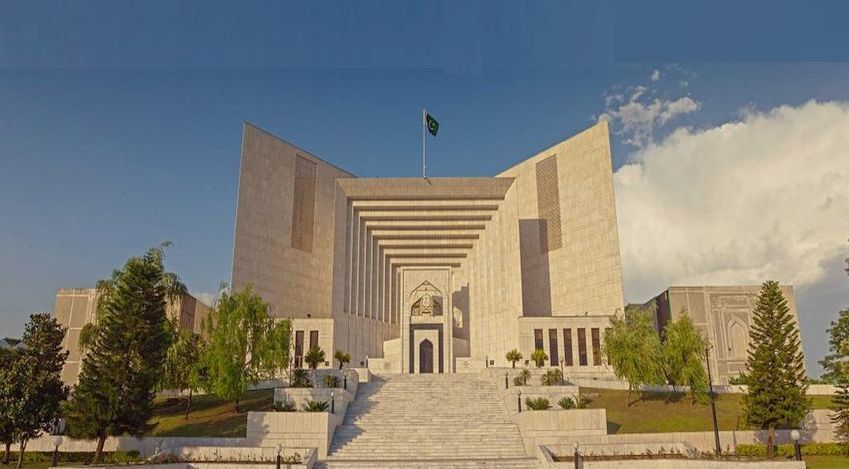Co-sharers in Shamlat Deh land hold the property jointly and cannot claim exclusive ownership of any specific portion without a formal partition --- Supreme Court of Pakistan
Islamabad 16-08-2024: The Supreme Court of Pakistan has set aside a Lahore High Court judgment in a long-standing land dispute case involving 332 Kanals of Shamlat Deh (joint holding) land in Mouza Khushab. The decision, rendered by a bench comprising Mr. Chief Justice Qazi Faez Isa, Mr. Justice Naeem Akhtar Afghan, and Mr. Justice Aqeel Ahmed Abbasi, upheld the rulings of the lower Courts, which had dismissed the plaintiffs' claims of exclusive ownership.
The case, Civil Appeal No. 477-L of 2011, arose from a suit initially filed in 1984 by the predecessors of the respondents, seeking a declaration of ownership based on adverse possession. The claim was rooted in alleged longstanding possession of the land and statements purportedly made by certain co-sharers in 1938, recognizing the plaintiffs' predecessors as owners.
However, the Civil Judge in Khushab rejected the suit in 1992 under Order VII Rule 11 of the Code of Civil Procedure, referencing a Federal Shariat Court ruling that deemed ownership claims based on adverse possession as repugnant to the Injunctions of Islam. A subsequent suit filed in 1992, amended in 2002, was similarly dismissed by both the Trial Court and the Appellate Court, with the latter ruling on October 29, 2004.
The plaintiffs then appealed to the Lahore High Court, which in 2011 accepted their revision petition and ruled in their favor, overturning the decisions of the lower Courts. This judgment was the subject of the appeal to the Supreme Court.
In its judgment, the Supreme Court emphasized key legal principles governing joint holdings, noting that co-sharers in Shamlat Deh land hold the property jointly and cannot claim exclusive ownership of any specific portion without a formal partition. The Court referenced established case law, including Muhammad Muzaffar Khan v. Muhammad Yousaf Khan (PLD 1959 SC (Pak.) 9) and Atta Muhammad v. Manzoor Ahmad (1992 SCMR 138), to support its ruling.
The Court also underscored the importance of specific and well-documented claims in adverse possession cases, criticizing the plaintiffs for failing to provide concrete evidence of their alleged ownership. The judgment noted that vague claims, unsupported by evidence such as documented statements or accurate revenue records, could not establish ownership rights.
Ultimately, the Supreme Court concluded that the Lahore High Court had erred in its Revisional Jurisdiction by overturning the well-reasoned judgments of the lower Courts. The High Court's judgment was set aside, and the plaintiffs were advised to seek redress through the appropriate revenue forum if they had any further grievances.
This ruling reaffirms the principles governing joint ownership of land and the scope of Revisional Jurisdiction, providing clarity on the legal standards required to establish ownership through adverse possession.
Powered by Froala Editor








